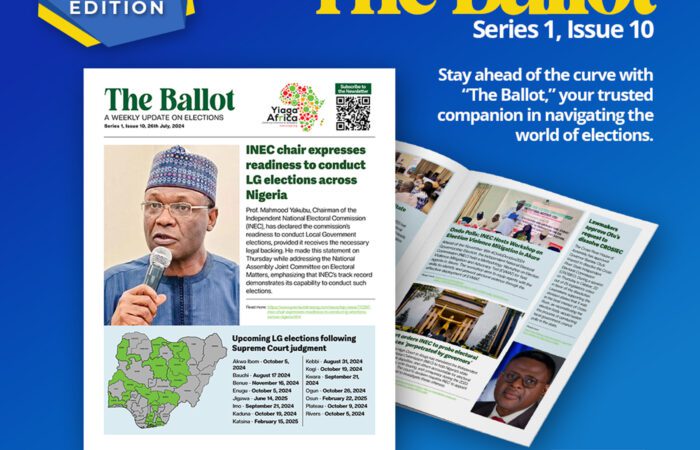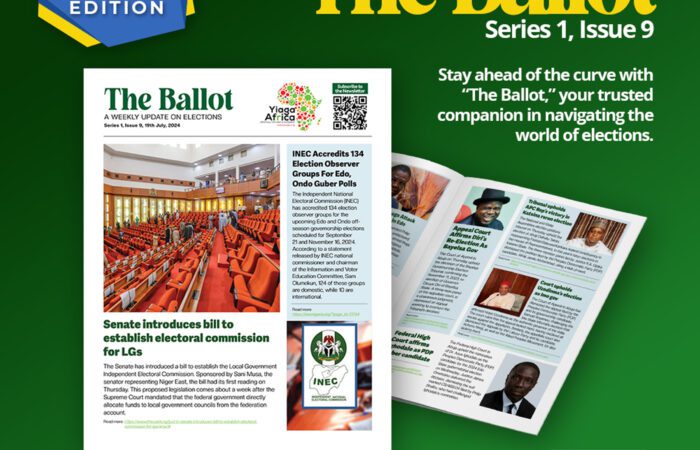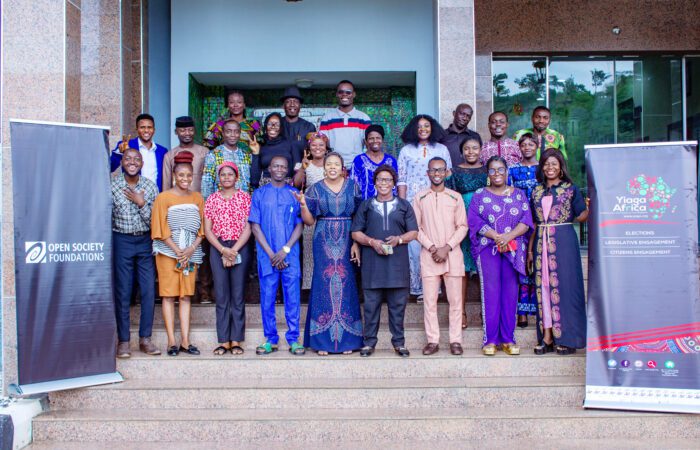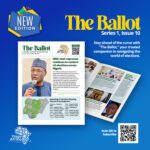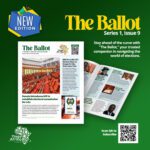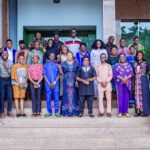Happy and prosperous New Year 2019 to every Nigerian especially my numerous readers across the world! In fact, it’s a new dawn for Nigeria as it’s an election year for the country; the sixth general elections in this Fourth Republic. It’s about six weeks to the February 16 date when the national elections into presidential, Senate and House of Representatives positions will be held. Governorship, state Houses of Assembly and Area Council elections of the Federal Capital Territory will hold two weeks after the first one on March 2, 2019.
Because politics is in the air, political gladiators are junketing around their constituencies to market different ideas on how they intend to govern, if elected. Thus far, the campaigns have been largely peaceful but there is no guarantee that this will remain so in days ahead given the penchant of the political contestants to adopt the Machiavellian principle of the “the end justifies the means”.
As the Election Day draws near, it is important for security agencies to carry out election hotspots mapping and put in place counteractive measures. Ekiti State has been in the news for the wrong reason in the recent past. On August 10, 2018, Bumni Ojo, a Commissioner of the Federal Character Commission, was murdered alongside two other persons at a viewing centre in Ado Ekiti. The dust of that heinous crime had yet to settle when unknown gunmen on Friday, December 28, 2018 shot dead 37-year-old councillor representing Ado Ward 9 at Ado Ekiti Local Government Council, Deji Akeredolu.
Despite the signing of a peace accord by presidential candidates on December 11 and 12, 2018, there still have been mudslinging, incendiary comments, hate speech and fake news peddled by political contestants. I agree with President Muhammadu Buhari in his 2019 New Year statement that “Elections need not be do-or-die affair, and we should not approach that eventuality in a democracy with trepidation and mortal fear.” That’s right but there is no gainsaying that in Nigeria, election is an uncivil war. It is so because like the late renowned Professor of Political Economy, Claude Ake, rightly observed, “Nigeria is running democracy without democrats.” Our politics is run as a business venture where funds are invested with the hope of recouping the investment with super-profit.
Peace accords and Codes of Conduct for political parties are paper tigers because they have no force of law. However, there is the Electoral Act 2010 and the 1999 Constitution as amended in 2018 which have criminalised electoral violence. In order to forestall violence, Section 95 of the Electoral Act prohibits certain conduct at political campaigns. Subsection (1) says: “No political campaign or slogan shall be tainted with abusive language directly or indirectly likely to injure religious, ethnic, tribal or sectional feelings”; (2) says, “Abusive intemperate, slanderous or base language or insinuations or innuendoes, designed or likely to provoke violent reactions or emotions shall not be employed or used in political campaigns”; (3) “Places designated for religious worship, police station, and public offices shall not be used: (a) for political campaigns, rallies and processions; or (b) to promote, propagate or attack political parties, candidates or their programmes or ideologies.” Police and other security agencies have their work cut out for them. I enjoin them to enforce the abovementioned electoral laws.
Nigeria Election Debate Group in conjunction with Nigeria Broadcasting Organisation has scheduled presidential election debate for five out of the 73 candidates for January 19. Nigerians should follow the debate in order to assess the candidates with a view to making the right choice on Election Day. I am aware that various civil society organisations are also partnering media groups to organise debates for candidates at different levels. These are commendable steps which the electorate should take advantage of to scrutinise the candidates. Not only that, voters should monitor campaign rallies closely and dissect the campaign documents of different candidates.
President Buhari has on several times promised “free, fair and credible elections”. I would have believed him more if he were not to be a candidate in the forthcoming polls. However, I do hope the President will drum it into the ears of the security agencies under his command not to be biased in favour of his candidacy and political party in the lead-up to, during and after the polls. There is palpable fear that the nationwide “Operation Python Dance” embarked on by the Nigerian Army from yesterday and the planned retention of the Inspector General of Police, Ibrahim Idris, who is due for retirement this month, are aimed at clamping down on political opponents. I enjoin Nigerian security agencies to be very professional and provide national security rather than regime security before, during and after the 2019 elections.
I appeal to my compatriots who have endeavoured to register but had yet to collect their Permanent Voter Cards to hurry up and collect them. As the saying goes, the Independent National Electoral Commission will not count prayer points but votes. If indeed anyone is disenchanted with the way things are or wants the incumbent political office holders to succeed in their re-election bid, the only way to play a role in ensuring that is by voting. Not just that but voting for the right candidate who will better our lives.
Apart from the aforementioned penchant to unleash electoral violence, Nigerian desperate politicians are also notorious for vote-buying. This is a criminal offence according to Sections 124 and 130 of the Electoral Act 2010, as amended. While I charge politicians to eschew this ignominious pastime of voter inducement, the electorate themselves must resist the temptation of selling their votes. As I often say, politicians are not charitable people. Their acts of charity are always with strings attached. It is aimed at wooing voters after which they embark on mindless looting of state resources for personal aggrandisements.
INEC must ensure electoral integrity and accountability in the forthcoming elections. The Commission must ensure value for the N189bn election fund received. Men and women of good character should be recruited to conduct the 2019 elections. Among the youth corps members, students and staff of federal tertiary institutions being recruited as ad hoc staff are good and bad people. Measures must be put in place that poll workers who will not soil the image of INEC are the ones trained and deployed to conduct the forthcoming elections. In addition, the nagging challenge of result collation must be resolved. As a former Soviet Union President, Josef Stalin, rightly observed, “It’s not the people who vote that count, it’s the people who count the votes.” INEC must make our votes to count in the choice of our new leaders.
Finally, post-inauguration is actual governance. According to the 52nd Governor of New York, Mario Matthew Cuomo,” politicians campaign in poetry and govern in prose” which translates into painting a rosy picture of what one would do when voted into office as if by merely saying it, means it will happen without raising a finger. Uneasy lies the head that wears the crown. Be that as it may, Nigerians must join hands to demand for good governance and accountable leadership. Politicians asked for the governance job and must be pressured to deliver on their campaign promises.
Source: The Punch

